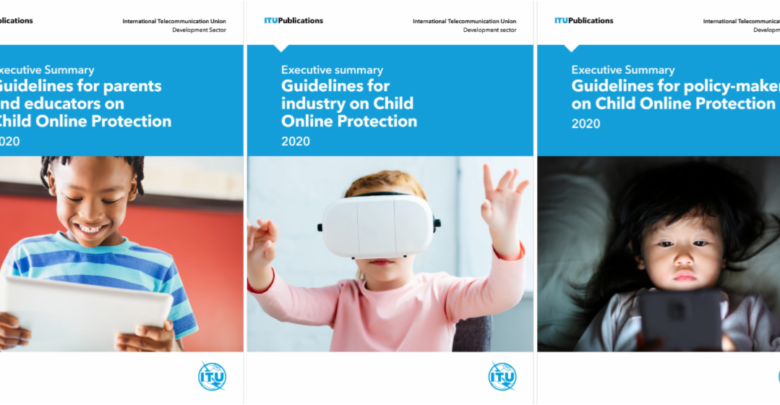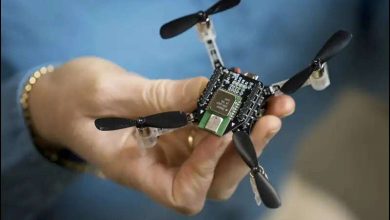
ITU today launched the 2020 Guidelines on Child Online Protection (COP) on how to develop a safe and empowering online environment for children and young people
The International Telecommunication Union (ITU) today launched its new 2020 Guidelines on Child Online Protection (COP), a comprehensive set of recommendations for children, parents and educators, industry and policymakers on how to contribute to the development of a safe and empowering online environment for children and young people.
The Internet and related digital technologies have opened new ways for children to communicate, learn and play, enjoy music, and engage in a vast array of cultural, educational and skill-enhancing activities. Yet, they have also exposed them to a range of content, contact and harmful conduct online.
“The question of how to ensure children’s online safety in the age of COVID-19 is now more pressing than ever before,” said ITU Secretary-General Houlin Zhao. “ITU’s new Guidelines on Child Online Protection are a very timely tool to safeguard the well-being, integrity, and safety of our children, our most precious gift.”
The new guidelines were re-designed from the ground up to reflect the significant shifts in the digital landscape in which children find themselves, such as the Internet of Things, connected toys, online gaming, robotics, machine learning and artificial intelligence.
In addition, this new edition addresses an important lacuna: the situation faced by children with disabilities, for whom the online world offers a particularly crucial lifeline to full and fulfilling social participation. Consideration of the special needs of migrant children and other vulnerable groups has also been included.
“The behavior of offenders and criminal networks is constantly evolving, as seen during the COVID-19 pandemic, with offenders taking advantage of the new reality of many children being online far more than usual. It is therefore imperative that child protection systems evolve as fast or even faster,” said Dr. Najat Maalla M’jid, United Nations Special Representative of the Secretary-General on Violence Against Children. “A worldwide and cross-border problem requires a multi-stakeholder, multi-sectoral and child-rights centered approach that brings all key actors, including children, together to ensure a stronger and proactive child protection online.”
The new COP Guidelines are designed to serve as a blueprint that can be adapted and used by different countries and stakeholders in a way that is consistent with national and local customs and laws,” said Doreen Bogdan-Martin, Director of the ITU Telecommunication Development Bureau. “They can be considered as an initial step in engaging all relevant stakeholders – governments, the private sector, parents and teachers’ associations, and children themselves – in discussions around targeted measures and actions to create a safer online environment.”
The 2020 Guidelines consist of four parts tailored to key audiences: children, parents and educators, industry and policymakers.
The guidelines for children are available in a child-friendly format and they consist of three resources: a story book for children under nine, a workbook for children aged 9 to 11, and a social media campaign and microsite for children and young people aged 12 to 18. These resources help children learn how to manage risks online, while at the same time empowering them to exercise their rights online and engage in opportunities that the Internet presents to them.
The guidelines for parents and educators serve as a practical tool to help them to effectively support children and young people’s interaction with the online world, to sensitize families to the potential risks and threats and help cultivate a healthy and empowering online environment at home and in the classroom. They emphasize the importance of open communication and ongoing dialogue with children, to create a safe space where young users feel empowered to raise concerns.
The guidelines for industry aim at supporting industry players in the development of their internal COP policies. They highlight key areas, such as integrating child rights considerations into all appropriate corporate policies and management processes; developing standard processes to handle child sexual abuse material; creating a safer and age-appropriate online environment; educating children, carers and educators about children’s safety and the responsible use of information and communication technologies (ICTs); and promoting digital technology as a mode for increasing civic engagement.
The guidelines for policymakers serve as a solid foundation on which to develop inclusive, multi-stakeholder national strategies, through open consultations and dialogues with children, to develop better-targeted measures and more efficient actions. ITU and its partners sought to create a highly usable, flexible and adaptable framework firmly based on international standards and shared goals, particularly the Convention on the Rights of the Child and the United Nations Sustainable Development Goals.
The 2020 COP Guidelines have been co-authored by ITU and a working group of contributing authors from leading institutions active in the ICT sector, as well as in child (online) protection issues.
About the International Telecommunication Union (ITU)
The International Telecommunication Union (ITU) is the specialized United Nations agency for information and communication technologies (ICTs), driving innovation in ICTs together with 193 Member States and a membership of over 900 companies, universities, and international and regional organizations. Established over 150 years ago in 1865, ITU is the intergovernmental body responsible for coordinating the shared global use of the radio spectrum, promoting international cooperation in assigning satellite orbits, improving communication infrastructure in the developing world, and establishing the worldwide standards that foster seamless interconnection of a vast range of communications systems. From broadband networks to cutting-edge wireless technologies, aeronautical and maritime navigation, radio astronomy, oceanographic and satellite-based earth monitoring as well as converging fixed-mobile phone, Internet and broadcasting technologies, ITU is committed to connecting the world. For more information, visit: www.itu.int
About the United Nations Special Representative of the Secretary General on Violence against Children
The Special Representative of the United Nations Secretary General on Violence against Children is a global independent advocate promoting the prevention and elimination of all forms of violence against children. The Special Representative acts as a bridge builder and a catalyst of actions in all regions, across sectors and settings where violence against children may occur. She mobilizes political support to generate renewed concern at the harmful effects of violence on children working with Governments, national institutions, civil society organizations and children promoting behavioral and social change to end violence against children by 2030. https://www.itu.int/en/mediacentre/Pages/pr10-2020-Guidelines-Child-Online-Protecion.aspx






